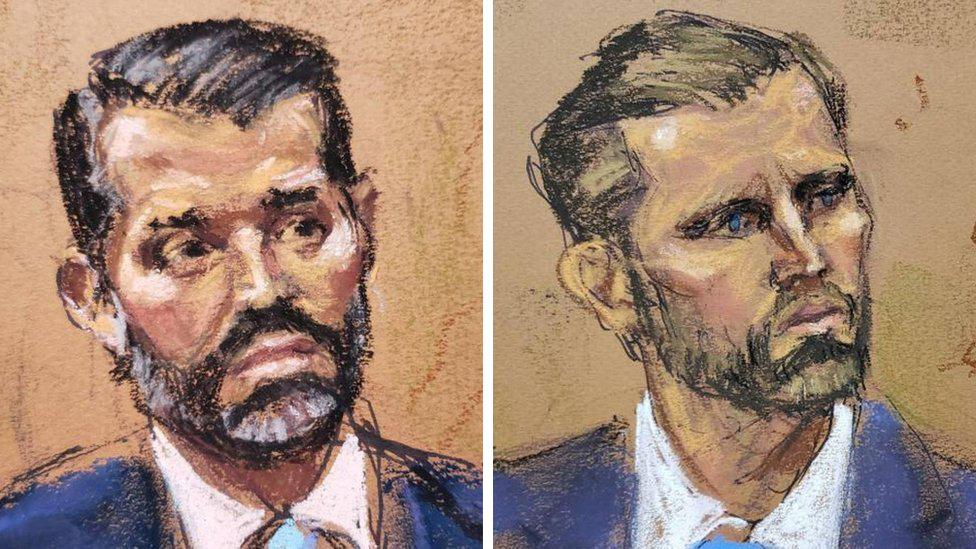Ivanka Trump testimony: Why 'I don't recall' is a common legal strategy
- Published
Watch: What Ivanka Trump didn't 'recall' on the stand
The four hours of testimony from Ivanka Trump on Wednesday could almost be summarised in three words: "I don't recall".
The eldest daughter of former President Donald Trump became the fourth member of the family to take the stand in a civil fraud lawsuit brought by New York's attorney general, who has accused Mr Trump of inflating his net worth to obtain favourable loans from banks.
The approach of the three Trumps before her, Mr Trump and two of his sons, Donald Jr and Eric, ranged from bombastic to humorous to visibly agitated.
But Ms Trump, who unlike them is not a co-defendant, had a different persona on the stand.
The 42-year-old maintained a placid, tightly controlled demeanour even as the tempers of the lawyers and Judge Arthur Engoron began to flare. Unfailingly polite, she smiled brightly at the judge and other court officials, answering questions in a quiet and sometimes monotone voice.
This was a "sharp contrast" to that of her father earlier this week, said University of Richmond law professor Cal Tobias. "She's not jousting with Judge Engoron or the attorney general's counsel, not making political statements, and is respectfully addressing the judge."
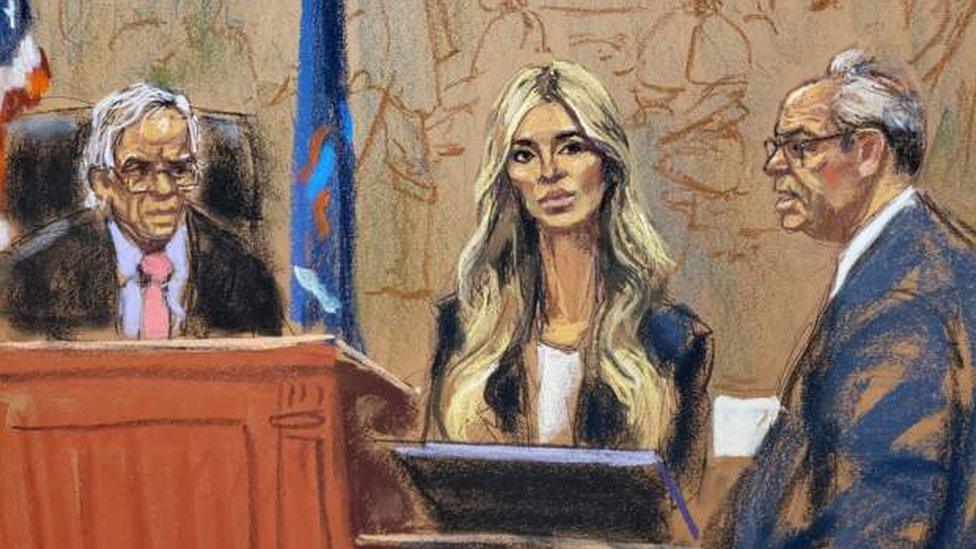
Donald Trump's eldest daughter remained composed throughout her day in court
While her style may have been different, there was one element of Ms Trump's testimony that overlapped with that of her brothers: she did not seem to remember much about the issues at hand.
For each question from prosecutor Lou Solomon aimed at whether Ms Trump had knowledge of her father's financial statements at the heart of this case, she replied mostly with a variation of "I don't know" and "I don't remember".
"Did you have any roles in preparing Donald J Trump's statements of financial condition?" Mr Solomon asked.
"Not that I'm aware of," Ms Trump replied.
"Did you ever review any of Donald J Trump's statements of financial condition before they were finalised?" the prosecutor asked.
"I don't recall," she said.
The strategy is common in business cases, where executives can argue that they handle a wide variety of issues and interact with many people daily, as well as put their name to a range of documents, said Eric Chaffee, an expert on white collar crime and a professor at Case Western Reserve University in Ohio.
"I think that the use of this defence is significant," Mr Chaffee said.
"It probably is a smart thing to do, legally," he added, as Ms Trump's repeated assertion of not recalling instances and documents could "end up being truthful", while at the same time helping protect both her reputation and help the defendants.
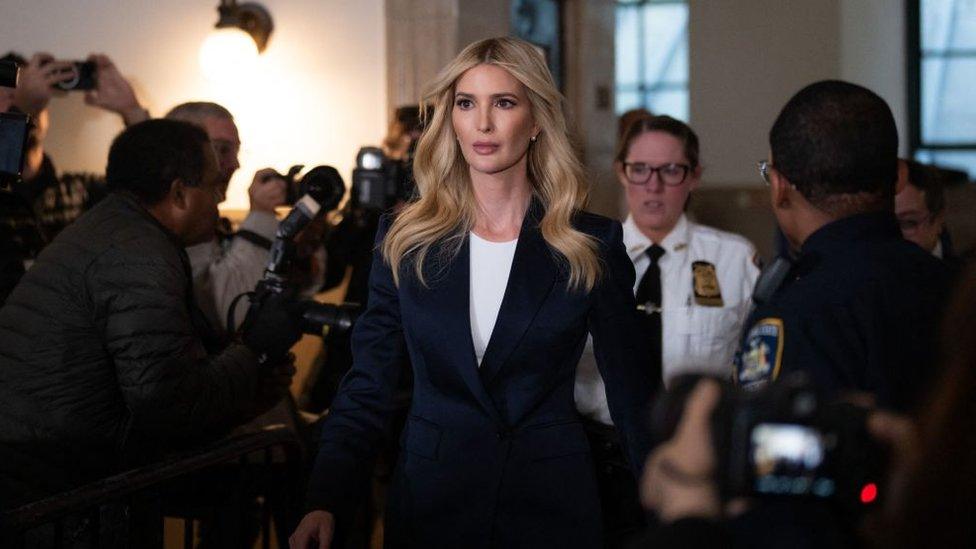
Ms Trump tried to avoid testifying, arguing she could not leave her three children in Florida
And Ms Trump's approach is further helped by timing. Many of those instances and documents referred to in court were from ten or more years ago, meaning her lack of recall is entirely plausible.
At one point early in the questioning, she joked that she could not remember a call because it happened more than 12 years ago when she was nine months pregnant with her first child.
Experts told the BBC the net effect of Ms Trump's testimony on the trial as a whole is likely to be negligible.
Ty Cobb, a lawyer who represented Mr Trump early in his presidency but has since spoken out against him, told the BBC he thought Ms Trump would have "zero impact" on the ultimate outcome.
"Her testimony has added not a single fact, as far as I can tell, other than she received one call while she was nine months pregnant," he said.
If anything, Mr Cobb said, her appearance on the stand - something she fought hard to avoid - may hurt the prosecution in the court of public opinion.
"I think it's a little bit of a dangerous decision by the attorney general, in the sense that it plays into the Trump theme of: this is just a political witch hunt," Mr Cobb said.
"Her being forced to testify, given the absence of any seemingly relevant testimony, sadly feeds into Mr Trump's fantasies," he said.
Ms Trump was the final person called to the stand by the attorney general's office. Next, the defence will be able to call their own witnesses.
Mr Trump, the frontrunner for the Republican presidential nomination, has already been found liable for fraud along with his two sons. All have denied wrongdoing.
This trial will decide the penalties the defendants will face.
New York Attorney General Letitia James, whose office filed the lawsuit, is seeking $250m (£204m) in fines and severe restrictions on how the Trump business operates in New York.
- Published8 November 2023
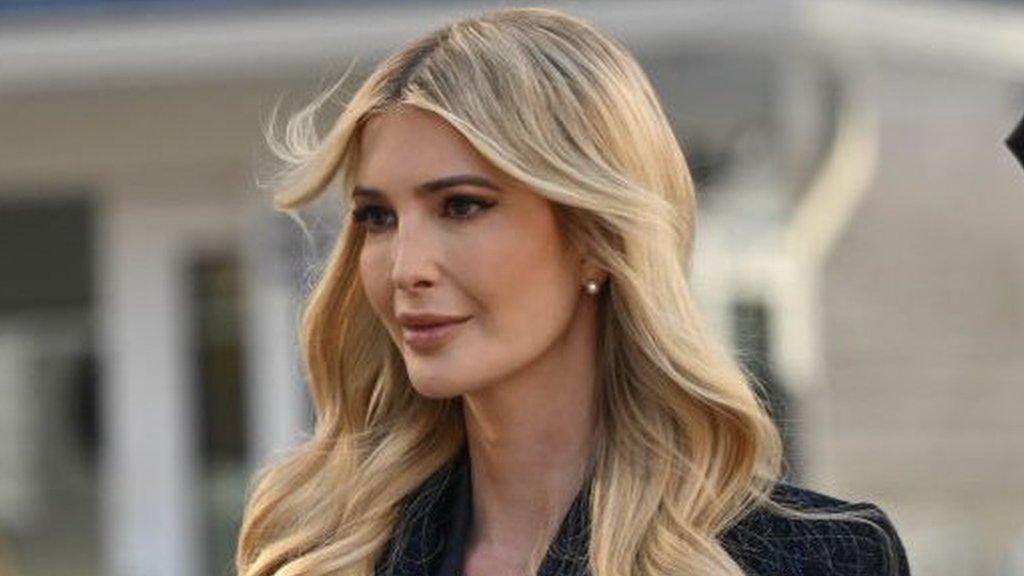
- Published8 November 2023
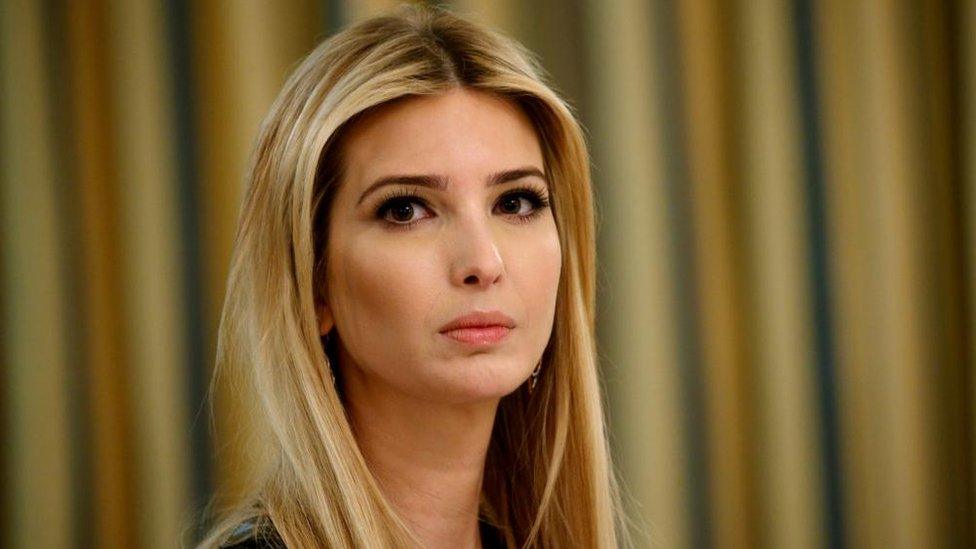
- Published6 November 2023
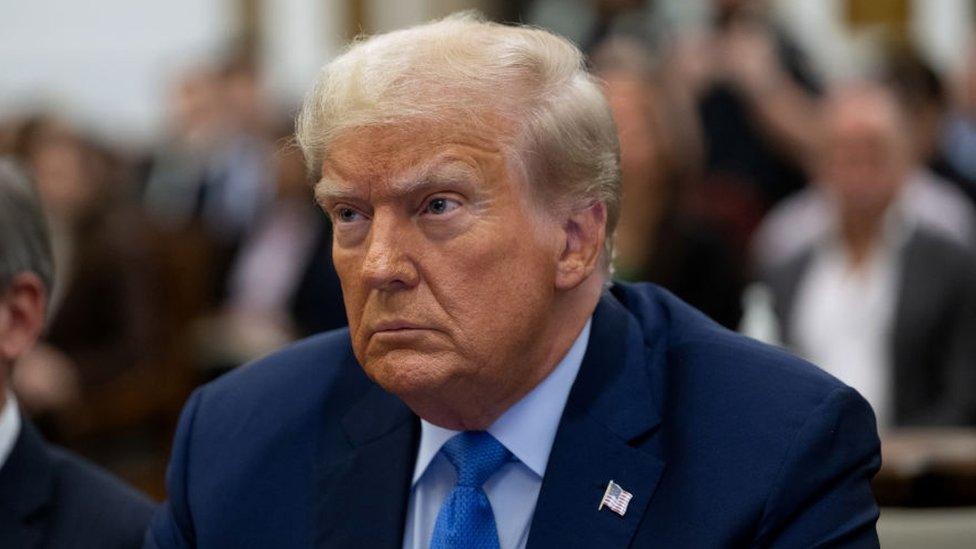
- Published3 November 2023
